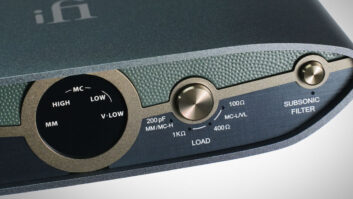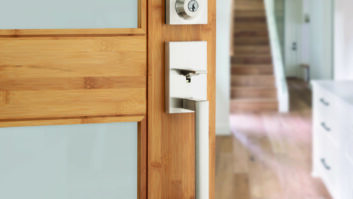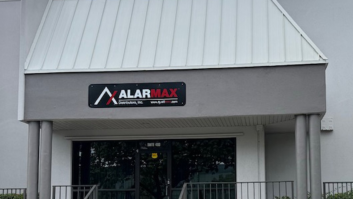NEW YORK – CE retailing’s travails seemingly came to a head this season with a rash of store closings and steep sales declines, but retailers, vendors and distributors canvassed by TWICE argued that while the challenges are real, the incidents are isolated.
Following an unforgiving fourth quarter when extreme winter weather crimped business across much of the country, h.h.gregg posted double-digit sales and earnings declines; RadioShack may close more than a thousand stores; Sony is shutting two-thirds of its store base; American TV will end operations this month; and CE icon J&R Music & Computer World shuttered its last remaining showroom.
Beyond bad weather, some analysts attributed retail weakness to the plight of the millennials, who are delaying home formation amid limited job opportunities and crushing student debt. To others, the headlines herald a major restructuring within the CE and appliance channel, hastened by the growth of online and mobile sales, the increasing clout of Amazon.com and setbacks at Best Buy.
But rather than signaling another wave of consolidation like the bankruptcies of Circuit City, Tweeter, Ultimate Electronics and others a decade ago, industry executives said the latest struggles stem from longsimmering issues related to specific business models, management teams or trading areas. The miserable winter, diminished margins and heightened competition simply brought them to a head, they said.
Dave Bilas, president/COO of the $15 billion Nationwide Marketing Group for independent dealers, believes “The brick-and-mortar business is here to stay,” and attributed many retailer woes to succession issues and excessive real estate.
For family-owned businesses, “the flaw is no succession plan” – a major cause of consolidation within the independent dealer channel. “Although some of our members have faced financial challenges, the lion’s share of closures is due to the fact that there’s no one there to take over the business,” he said.
For other retailers, “the stores are just too big,” Bilas noted, particularly big-box chains that once devoted as much as 3,500 square feet of space to pre-recorded music.
“A 45,000-square-foot store could be smaller,” he observed, noting that some of Nationwide’s most successful dealers operate out of 8,000- to 10,000-square-foot storefronts.
“Showrooms may be smaller and customers may visit fewer stores, but sales floors are still very important,” Bilas argued. “The storefront won’t go away; it will evolve.”
Warren Chaiken, president/COO of national appliance and CE distributor Almo, said dealers that choose the right brands, and drive traffic with effective advertising and digital marketing, will do just fine. “Those who invest in their stores, leverage the social network, bring in the right brands and evolve their businesses will be successful. Those who put their heads in the sand will have them chopped off.”
NECO dealer Matt Muccitelli, a principal of Park Furniture & Appliance in Altoona, Pa., attributed recent retail failures to “people that didn’t adjust their businesses” to a changing marketplace. Custom install, for example, has become almost mandatory for A/V specialists, he noted, although many retailers still aren’t equipped to provide those services.
His own company, a four-store chain acquired 40 years ago, started out in custom home theater but has since diversified into home automation, car audio, furniture and major appliances, which is now his largest business, he said.
Zach Elkin, brand marketing director for Bosch and Thermador, agreed on the need for change. “There’s no major consolidation in retail, just a continuing evolution,” he said. “Unfortunately, some stores have aging formats that haven’t adjusted to the new consumer. Ninety percent of shoppers research products online first, so by the time they visit your showroom they’re experts and have very high expectations.
“This is not a bad thing — it’s a good thing,” he said, because it plays to the strengths of independents. “Good, strong independents have a value proposition that includes fantastic service and deep assortments, and is not just about price.”
Ironically, Sam Abdelnour, North American sales VP of Whirlpool, took some dealers to task, not for carrying too few appliances but for abandoning electronics. “The CE and appliance guys didn’t understand that a great deal of their draw was from CE,” he said. “When CE softened, they got out of the category, but traffic suffered. Some guys tried mattresses and furniture, but they should be more attuned to their CE traffic.”
He continued, “You have to pay attention and be proactive vs. reactive. The business is out there for those who are working for it through marketing and promotions.”
Indeed, global consultancy Interbrand, in its annual “Best Retail Brands” report released this month, acknowledged that “consumer electronics has become a mature industry,” and that the specialty CE sector, like most brick-and-mortar retailers, is facing fierce online price competition, waning customer loyalty and shrinking profit margins.
But CE chains like Best Buy, which in the last four years fell from the No. 2 most valuable retail brand (after Walmart) to 20th place on Interbrand’s Top 50 U.S. ranking, are beginning to fight back. Their tools: in-store price matching; connected, mobilefriendly showrooms; online payment options, like RadioShack’s acceptance of PayPal; and novel, dramatic or interactive sales-floor presentations, like Best Buy’s Samsung shops, all of which can “transform the expensive liabilities of physical locations into assets,” the consultancy said.
TAKEAWAY
While the challenges are real, the incidents are isolated. Rather than signaling a wave of consolidation, the latest closings stem from long-simmering issues related to specific business models, management teams or trading areas.













